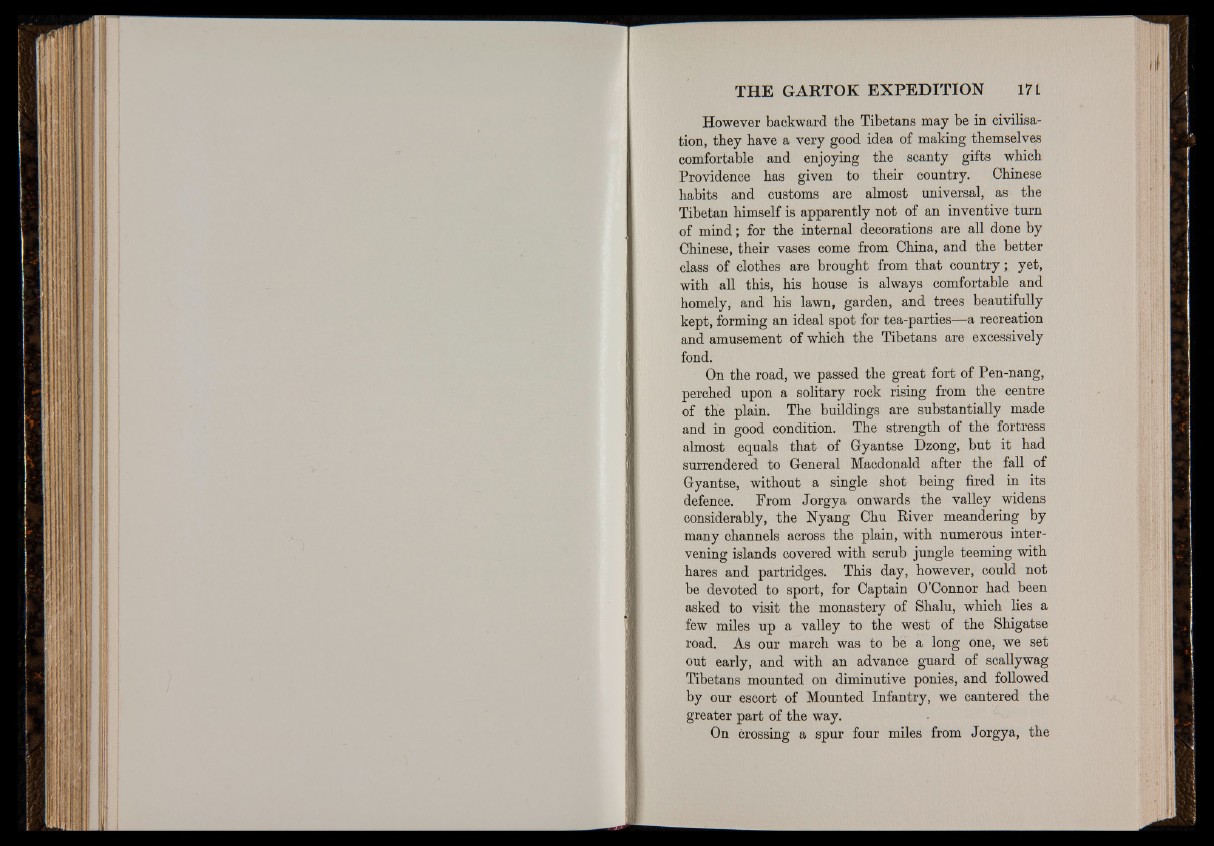
However backward the Tibetans may be in civilisation,
they have a very good idea of making themselves
comfortable and enjoying the scanty gifts which
Providence has given to their country. Chinese
habits and customs are almost universal, as the
Tibetan himself is apparently not of an inventive turn
of mind; for the internal decorations are all done by
Chinese, their vases come from China, and the better
class of clothes are brought from that country; yet,
with all this, his house is always comfortable and
homely, and his lawn, garden, and trees beautifully
kept, forming an ideal spot for tea-parties—a recreation
and amusement of which the Tibetans are excessively
fond. On the road, we passed the great fort of Pen-nang,
perched upon a solitary rock rising from the centre
of the plain. The buildings are substantially made
and in good condition. The strength of the fortress
almost equals that of Gyantse Dzong, but it had
surrendered to General Macdonald after the fall of
Gyantse, without a single shot being fired in its
defence. From Jorgya onwards the valley widens
considerably, the Nyang Chu River meandering by
many channels across the plain, with numerous intervening
islands covered with scrub jungle teeming with
hares and partridges. This day, however, could not
be devoted to sport, for Captain O’Connor had been
asked to visit the monastery of Shalu, which lies a
few miles up a valley to the west of the Shigatse
road. As our march was to be a long one, we set
out early, and with an advance guard of scallywag
Tibetans mounted on diminutive ponies, and followed
by our escort of Mounted Infantry, we cantered the
greater part of the way.
On crossing a spur four miles from Jorgya, the